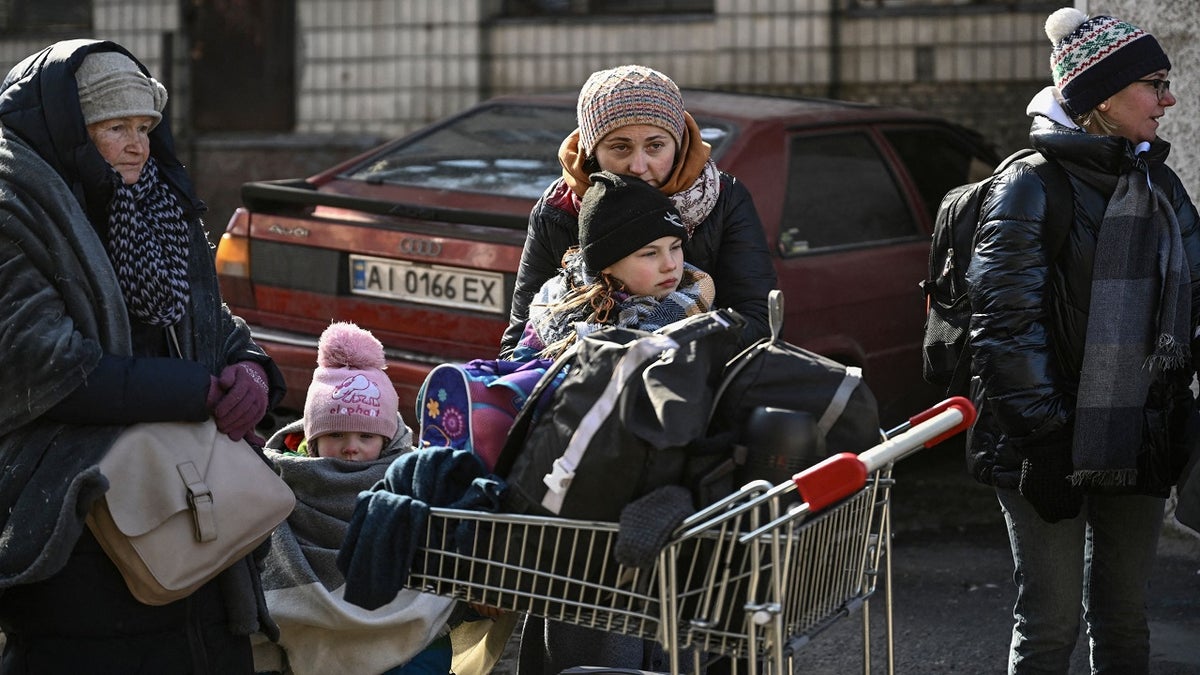How to protect refugee children uprooted from Ukraine
Fox News medical contributor Dr. Marc Siegel addresses the impact on Ukrainian children fleeing devastated cities.
Ukrainians are fleeing their country in droves as Russia's invasion continues, and the nation's children are at risk of bearing the brunt of the blow.
Fox News medical contributor Dr. Marc Siegel shared with "America’s Newsroom" Thursday how dangerous uprooting children can be for their development if not treated properly.
According to the doctor, who spoke with Save the Children U.K. senior humanitarian health lead Ayesha Kadir, refugee children face a "very high" mortality rate due to high-stakes elements throughout travel.
AMERICANS JOINING UKRAINIAN FORCES EAGER TO FIGHT AGAINST RUSSIA: ‘WE’RE GOING TO STRAIGHTEN IT OUT'

A girl which fled from the war in Ukraine reunites with her father after crossing the border in Medyka, southeastern Poland, Wednesday, March 2, 2022. (AP Photo/Visar Kryeziu)
"Loss of structure, schools closed, looking to parents or other leaders for direction – the disorientation they feel, even if they make it to the refugee status, in the combat zone they’re submitted to exploitation, to sexual abuse, to combat itself, to injuries," he explained.
"If they make it out of there, they have a period of trying to figure out a new structure," he said. "And in the first year after being in a combat zone, the mortality rate among children is very, very high."
Siegel went on to explain children could experience somatic symptoms and post-traumatic stress, as well as physical ailments such as gastrointestinal issues, headaches and trouble sleeping. The good news, he suggested, is kids can easily recover if given the appropriate medical attention through modes of therapy.

Two girls look out of the window as their train arrives, after originating in Ukraine, to the station in Zahony, Hungary, Monday, March 7, 2022. (AP Photo/Darko Vojinovic)
"Kids are resilient," he said. "If the parents show them courage, and they show them the way forward, kids will respond and they will heal."
While the American public watches video images of children fleeing their homes and being separated from their families, Siegel reminded parents in the U.S. to show empathy for Ukrainian children to protect America’s kids from feeling the same effects.

Residents wait to be evacuated from the city of Irpin, north of Kyiv, on March 10, 2022. Photo by ARIS MESSINIS/AFP via Getty Images
CLICK HERE TO GET THE FOX NEWS APP
"They’ll see your courage and they’ll respond with courage," he said. "Answer their questions. Don’t be afraid of this topic. Don’t veer away from it. Kids are going to want to know – is this going to happen here? You answer: ‘very unlikely.’ Explain why. That’s the way forward here."


